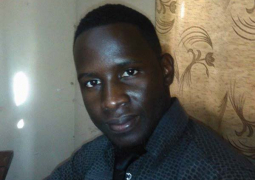NGOAIDs, with support from UNAIDS, on 15 December 2011 held a daylong advocacy training on the fight against HIV/AIDS at the Paradise Suites Hotel in Kololi.
The forum, which targeted civil society organizations, religious leaders as well as political leaders, was held to mainly brainstorm on how religion, gender and human rights relate to HIV/AIDS in a bid to influence policy for a particular set of people.
In his remarks on the occasion, Sheikh E.T. Lewis, chairman of NGOAIDS, revealed that the advocacy training was their third series of forums in relation to HIV/AIDS.
He underscored the importance of the media, adding that the fourth estate plays a very vital role in the campaign against HIV/AIDS thus needs to be supported.
He assured the gathering of their continued efforts in providing facts to the people.
Also speaking on the occasion, Ahmed Jegan Loum, president of NASO, says the biggest challenge in HIV/AIDS is stigma and discrimination. “If people are stigmatized their rights are violated,’ he added.
The training was a step in the right direction, he said, while calling on the need for advocacy for a paradigm shift in the stigmatization menace.
He also underscored the importance of the religious leaders in the process of calling for attitudinal change towards HIVAIDS and stigmatization.
Nuha Ceesay, Country Officer of UNAIDS, in a paper presented on the universal access to HIV prevention treatment, care and support, said that 34 million people are living with HIV/AIDs at the end of 2010 in sub-Sahara
However, he noted that universal access is the global commitment to provide HIV prevention treatment care and support services to all those in need based on national targets set by countries.
“Universal access is a human rights issue,” the UNAIDS country officer said, adding: “It is about equitable, accessible, affordable comprehensive and sustainability.”
He adduced that information and services must be made available to rich, poor, and vulnerable groups including sex workers, injection drug users among others.
He also urged people to know their status not through accident, adding that many researches have revealed that most of the people that spread the HIV/AIDS are those who do not know their status.
He called for concerted efforts from everyone, irrespective of one’s status, in fighting the disease so that universal access to HIV/AIDS prevention treatment, care and support can be attained.
Mr Ceesay also informed the convergence that UNAIDS have come with new strategies such as zero new infection, zero new related-deaths and zero new stigma and discrimination all geared towards fighting the menace of HIV/AIDS.
Giving an overview of global and national trends of HIV/AIDS, Pa Ousman Bah of the National Aids Control Program (NACP), said that in The Gambia, HIV epidemic is thought to be characterised by low prevalence with concentrated areas of infection as well as some generalised infection( UNGASS;2008).
According to Mr Bah, HIV 1 slightly increased in prevalence from 1.4% (2007) to 1.6% (2008) and HIV 2 has been decreasing since 2006 by 0.9% and in 2008 by O.4%.
He further said that in 2008, 15 - 24 years of age cohorts have the highest HIV 1 prevalence and 25 - 34 years of age cohorts have more HIV 2 prevalence.
The disease, he said, can be transmitted by sex, blood transfusion as well as by mother to child “but the most common way of transmission in sub-Saharan
Plans are under way for the country to conduct a demographic survey to know and keep track of the HIV and AIDS prevalence on the ground.


